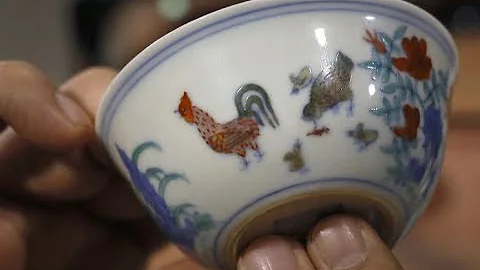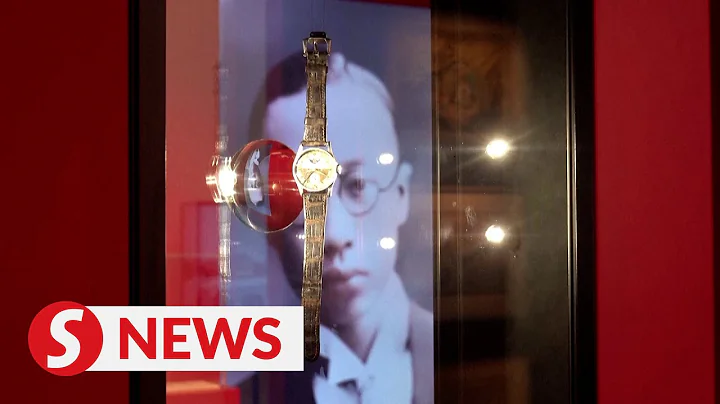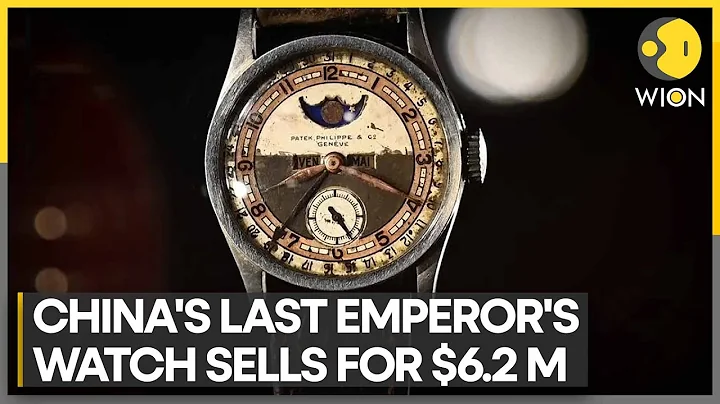- [Foreword]
In 1792, Britain sent a huge fleet, with the "Lion" as its flagship, sailing to China in a mighty manner.
At this time, China was at the end of Qianlong's reign, which was also the end of the "Kangxi and Qianlong dynasties" in history.
The British fleet was headed by George Macartney, the famous diplomat of the British Empire. On the surface, he went to the Qing Empire in the name of "presenting a birthday gift to Qianlong". In fact, Macartney's ultimate goal was to get the Qing Dynasty to sign a trade agreement with the United Kingdom.
Judging from the size of the fleet and the level of representatives sent by the British side, the British diplomacy can be said to be "full of sincerity." But Emperor Qianlong did not pay much attention to the British mission, but simply "sent" them away.

When Macartney returned from the Qing Dynasty, he also brought Qianlong's handwritten letter to the British King. This letter is still preserved in the British Museum and seems to mock Qianlong's "ignorance" at that time.
Some people say that the British envoy's visit to China was the beginning of the real decline of the Qing Dynasty. But on the other hand, Qianlong was the longest-lived emperor in the Qing Dynasty and even in the entire ancient Chinese history. His scheming and political acumen had nothing to do with the word "ignorance".
So the question is, Qianlong ignored the British mission. Was he really ignorant, or did he have other motives?
Let’s discuss it in detail today.
- [Sea trade is the "red crane crown" of the feudal dynasty]
We all know that in ancient times when technology was underdeveloped, the geographical environment of a region determined the political system of the region's regime.
As an island country in northwest Europe, Britain has a lack of agricultural economy and has no choice but to embark on the road of maritime trade. For the United Kingdom, it must not rely on its own land to become a producer of raw materials. Otherwise, its economy will never surpass the fertile continent of Europe, let alone China far in the east.
For Britain, maritime trade is their only way out.
In contrast, China's natural conditions are much better than those in the UK. There are vast plains that can be cultivated, food can be self-sufficient, and the vast land and resources allow light industry to flourish. In this way, China no longer needs to let a large number of people take risks to explore the unknown sea to make a living. Consolidating agriculture through "feudal state building" is the foundation of China's land power.
However, although maritime trade is risky, the profit is much higher than that of agriculture. Why was Qianlong unhappy with Britain's friendly trade?

In fact, the emperor of China knew that maritime trade could make money as early as the Ming Dynasty Yongle period. Ming Chengzu Zhu Di once sent Zheng He on seven voyages to the West, selling tea, porcelain, silverware, spices, etc. abroad in exchange for ivory, rubber and other specialties, earning nearly thousands of times the profit each time.
According to " History of the Ming Dynasty ", Zheng He's voyages to the Western Seas brought a total of more than 20 million taels of silver to the Ming Dynasty's treasury, which enriched the Ming Dynasty's treasury and paved the way for the subsequent prosperity of the Ming Dynasty.
With such a sure-profit business, why didn’t the Ming Dynasty continue to send people to do maritime trade?
In fact, allowing trade will bring side effects, that is, the rise of private capitalism.
The huge profits brought by Zheng He's voyages to the West soon attracted the attention of the people in the southeastern coastal areas. The people discovered that if silk was sold abroad, the profit would be many times or even dozens of times higher than if it were sold to the imperial court. This also led to many people selling their fields during the Yongle period and switching from farming to business. They had no land, so they did not have to pay taxes to the court, and at the same time they became rich through private shipping and trade.
As time went by, there were fewer people farming, and the tax base of the feudal dynasty was shaken.

In order to prevent this phenomenon from getting worse, the Ming Dynasty implemented a "sea ban" policy, and private ships were not allowed to go to sea without permission.
It can be said that maritime trade is like the "Crane Crown" of the feudal dynasty. Once domestic private business develops, the feudal dynasty will sooner or later be replaced by capitalism.Therefore, since the Ming Dynasty, the monarch's number one goal has been only one, and that is how to develop and consolidate the small-scale peasant economy and prevent the budding capitalism from developing on its own.
Aixinjueluo Hongli, also known as Emperor Qianlong, has studied Chinese culture since childhood and is knowledgeable about the past and present, so he naturally understands this truth. Whether it was his grandfather Kangxi or his father Yongzheng , they all taught Qianlong the disadvantages of open trade with foreign countries.
History has no ifs. If Qianlong really allowed free trade between Britain and the Qing Dynasty, then the Qing Dynasty might have perished faster.
Every historical figure will be imprisoned by the era in which he lives. For Qianlong, the core interest is to stabilize the basic foundation of the Qing Empire. In contrast, it was impossible for Qianlong to agree to the conditions offered by the British.

This also reflects the two limitations of the feudal dynasty:
First: the small-scale peasant economy was the main tax base of the feudal dynasty, and commerce could not develop freely.
Second: Feudal autocracy integrated "family" and "country" into one, and the privatization of the country led rulers to give priority to family interests when making decisions.
In this way, we can understand Qianlong's basic attitude towards the British envoys coming to China. Qianlong was nearly eighty years old at this time. Although he might be confused, he was unlikely to make mistakes on the most basic issues.
After learning that the British sent an envoy to the Qing Dynasty, Qianlong ordered his ministers to follow the foreign tribute system.
- [Qianlong treated the British envoys coldly when they came to China]
In fact, Qianlong was relatively clear about the rise of Western industry.
From the firearms that the Portuguese paid tribute to the Qing Dynasty, to Yongzheng's fondness for Western reading glasses, and Qianlong himself also liked foreign clocks and other sophisticated small objects, there were countless industrial products that were paid tribute in previous years.

Qianlong knew very well that Western technology may have surpassed China at that time in some aspects, but his own identity did not allow the Qing Dynasty to engage in equal diplomacy in the modern sense.
On June 21, 1793, Macartney and his party arrived at Zhu Kezhu Island in Macau, China, and then extended northward along the southeastern sea, passing through the most economically developed Jiangsu and Shandong, and finally docked the fleet at Tianjin Wei Port.
When groups of fleets were anchored in the port, countless people saw this behemoth on the sea. There were sixty-four artillery pieces on the flagship "Lion", as well as countless small gunboats and destroyers .
Macartney wanted to use this fleet to demonstrate the military strength of the British Empire.

"Lion" model
Macartney's entourage came from all walks of life, including businessmen, lawyers, doctors, priests, scientists and military officers and generals. They were all welcomed by local officials.
Macartney followed the etiquette of the Qing Dynasty and sincerely said that Britain came to congratulate the Qianlong Emperor of the Qing Dynasty on his birthday.
Qianlong was very happy when he heard this news. Although Qianlong did not know the specific location of Britain, the presence of foreign barbarians coming to Korea was a sign that China was a "celestial country". However, this was the first time in the history of the Qing Dynasty that such a large-scale "tribute" had occurred. At that time, Qianlong was also aware that the British envoy was not a good person this time.
A similar plot occurred during the Kangxi period. Galdan led most of the troops to Beijing, not so much to "pay tribute" but to negotiate terms. Even though the words were extremely polite, the treaty made by the envoys was the highlight.
Qianlong therefore kept an eye on it, but face-saving work still had to be done. He ordered his ministers to invite British envoys to Beijing, where there were many sightseeing tours, theaters, banquets, and interviews with descendants of the royal family.
Britain is also full of sincerity. Macartney said that the British King George III began to prepare congratulatory gifts as early as a year ago for the sake of friendship between Britain and the Qing Dynasty. There were more than 600 boxes in total, including telescopes and geometric tools. , clocks, steam engines , muskets , oil paintings and various handicrafts. There are so many varieties that everyone who sees them will be amazed.

It was summer at that time, and Qianlong was still at the Chengde Summer Resort.The British envoys hoped to bring gifts to Chengde to meet Qianlong.
Before meeting Emperor Qianlong, officials of the Qing Dynasty taught the British envoys some court etiquette, such as: kneeling three times and knocking down nine times.
This made Macartney difficult. For Britain, since its victory over the Spanish Armada, its diplomacy with foreign countries was based on equal relations between the two countries. Even meeting its own King George III was only a one-way affair. Get down on your knees. As for kneeling on the ground in "Three Knees and Nine Kowtows", it is something that only criminals and prisoners can do..
As a result, Macartney politely refused the salute process.

He wrote in his sailing diary: "When the Qing officials asked me to kneel on my knees, I thought of my king. I represent the British Empire and cannot bear such humiliation."
Qing officials After reporting this matter to Qianlong, Qianlong was very unhappy when he heard about it and got angry: "Such ignorant foreigners are not worthy of any courtesy."

Subsequently, Macartney, who was experienced in diplomacy, chose to compromise. He implored Qianlong to accept the ceremony of kneeling down on one knee by the British envoy, so as not to insult the British king; secondly, it would also show Qianlong's kindness, open-mindedness and broad-mindedness.
After a series of negotiations, Qianlong agreed to Macartney's request. Macartney and his party also successfully arrived at the summer resort and met Emperor Qianlong.
The palace was splendid and resplendent. Qianlong was accompanied by countless people. Goshiha (guards) were arrayed on both sides, and Qianlong was seated in the center. According to Macartney's description, Emperor Qianlong's court treatment in the Qing Dynasty was very luxurious. Even if he was not in the palace, his companionship and living standards were not comparable to that of any Western monarch.
After seeing Qianlong, Macartney knelt down on one knee and spoke in English about his purpose.

Qianlong looked at Macartney in front of him without any good impression in his heart. However, he was very interested in Thomas, who spoke Chinese next to Macartney. So it was immediately reported that Thomas came to the royal court to talk and was rewarded with a purse embroidered with a golden dragon.
After the birthday ceremony, Macartney began to explain to Qianlong his true intention - to allow the Qing Dynasty to trade with Britain.
British ships traveled northward along the southeastern waters and were very familiar with China's natural harbors. Macartney proposed detailed trade details, including allowing Guangdong (including Macau and Hong Kong), Fujian, Zhejiang, Jiangsu, Shandong, and Tianjin to Open free trade port . British merchants were allowed to enter the Qing Dynasty, the British Embassy was established in Beijing, and taxes were reduced for trade between the two countries.
If analyzed carefully, these requirements are a simplified version of the " Nanjing Treaty ".
As we mentioned above, the foundation of the feudal dynasty was agriculture. If the coastal areas were free to trade, especially Jiangsu, Zhejiang, and Shandong were major tax provinces, this would strongly affect the Qing government's dominance in the Central Plains. So Qianlong decisively rejected a series of requests made by Macartney.

But Qianlong did not prevent all trade with Britain. Qianlong allowed British merchants to do business in Guangzhou, but they could only trade with the Qing government. Merchants were not allowed to go outside the market, and trade was not allowed to spread among the people.
Although Macartney still tried his best to seek conditions for trade with the Qing Dynasty in the following days, he did not get Qianlong's permission.
Macartney's negotiations in Chengde ended in failure. Although he received various rewards from Qianlong, enough for them to live for three generations, they still failed to achieve their ultimate goal of coming to China.
Before leaving, Qianlong also personally wrote the full text of the "Edict to the King of British Cards", which is nearly a thousand words, full of disparagement of Britain.

This letter is still treasured in the British Museum. It was also the British hope to use it to satirize the ignorance of the Qing Dynasty at that time. But this was Qianlong's helpless move at the time, because the British conditions were still too harsh for the Qing Dynasty at that time.
Later, at the request of Qianlong, the British mission went south to visit the customs and customs of the Qing Dynasty.
This is definitely Qianlong's worst decision. Qianlong originally wanted the British to see the clear rivers and seas of his empire, and the peace and prosperity of the country. Unexpectedly, what the British saw were backward weapons and equipment, poorly trained troops, poor and weak Chinese people, as well as the oppression of local powerful men and the status of merchants. of humbleness.

Macartney mentioned in his diary:
The ships of the Qing Empire were "in dilapidated condition" and were no match for the British Royal Navy; the army robes were added to the body, which affected the marching speed; the armor could not resist bullets, the firearms were not developed enough, and the range of the cannons was limited Short, low hit rate. If the British army entered the Qing Empire, they would be able to reach Beijing in less than half a summer.
This is the objective evaluation of the feudal empire by the capitalist empire, and it also kicked off the subsequent Opium War.

Of course, although this period of history is considered by later generations to be the eve of the modern crisis, it is undeniable that before Tongzhi, the trade between China and Britain had always been a trade surplus, and it was also the first time that Britain suffered an outflow of silver in the distant east. distressed.
There are no ifs in history. It would be too harsh to use today's ideas and values to criticize Qianlong's incompetence at that time.
But it is undeniable that "if you fall behind, you will be beaten" is an eternal truth. Although China has experienced semi-colonial semi-feudal rule by Western powers, the Chinese nation has never completely surrendered to them. Self-improvement is our eternal destiny. truth.





















